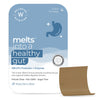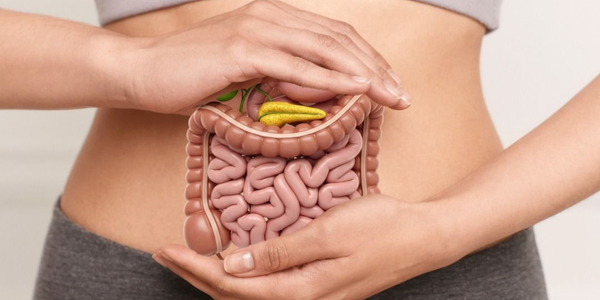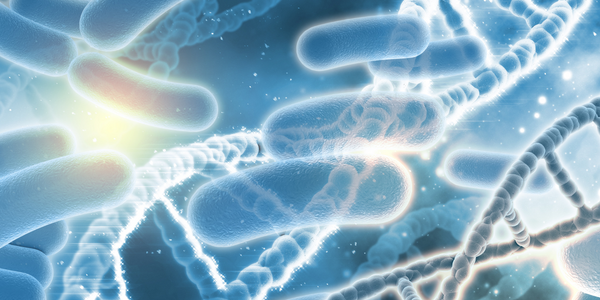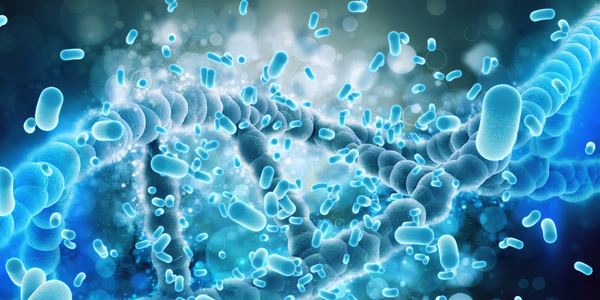The human gut is home to a billion microorganisms, each of which plays a unique role in the overall health and well-being of our digestive system. When you eat something, the digestive enzymes, and gut bacteria break it down into molecules that travel through the bloodstream and provide nourishment for the body. When your nutrient absorption is working properly, all necessary nutrients, such as proteins, vitamins, carbohydrates, and minerals, are absorbed through the intestinal wall, while toxic substances are eliminated from the body.
However, nutrient absorption levels vary and can be influenced by a variety of medical conditions. Nutrient deficiencies result from not being able to absorb enough nutrition from food over a long period of time which leads to health issues, such as poor gut health. Some common symptoms include inflammation, stomach infections, constipation, leaky gut, irritable bowel syndrome, etc.
In such cases, nutrient absorption must be improved through a variety of lifestyle and dietary changes. Since gut health and nutrient absorption are correlated, making efforts to improve nutrient absorption will eventually result in a better, healthier gut. Scroll down to learn about some of the key changes you can make in your daily life.
5 Easy Tips To Improve Nutrient Absorption
1. Eat a balanced diet
We get our nutrients from our diet. Eating a balanced diet is how we ensure that our body gets all the macro- and micronutrients necessary for our overall functioning, and that includes our gut too. Nutrient absorption in our gut is also dependent on factors like the presence of other nutrients that influence the absorption of certain vitamins and minerals. For example, consuming foods with probiotic in diet like vitamin C can help enhance the absorption of iron, while consuming vitamin D-rich foods can help promote the absorption of calcium. On the other hand, high amounts of oxalates from green leafy vegetables can bind to certain minerals and prevent the body from absorbing and utilizing them.
A well-planned food combination can significantly improve nutrient absorption. Furthermore, eating a well-balanced meal from different food groups can also help ensure that you are getting all the essential nutrients required for optimal health, for example, foods high in protein content promote muscle growth, while calcium-rich foods are beneficial to your bones.
2. Consume more probiotics and prebiotics
Probiotics are live microorganisms that improve gut health by encouraging the growth of healthy bacteria required for digestive functioning. One of the most important ways that probiotics and prebiotics can help gut health is by increasing nutrient absorption. Probiotics work by restoring the gut microbiome's equilibrium, which can be disrupted by poor nutrition, stress, illness, or medication use.
The inclusion of prebiotics along with probiotics in diet provides double gut benefits. Prebiotics are non-digestible fibers that serve as food for probiotics. Apart from feeding the probiotics, they also help them to grow and multiply, thereby enhancing gut functions like digestion and nutrient absorption. Certain strains of bacteria have been shown to enhance the absorption of calcium, which is essential for healthy bones and teeth. Probiotics can also improve the absorption of iron, a mineral that is essential for the production of red blood cells and overall energy levels. Apart from improving vitamin and mineral absorption in the gut, common probiotic strains like Lactobacillus and Bifidobacterium have been known to support the production of B and K vitamins in the body.
If you have trouble including a probiotic source in your regular diet, you can also opt for a probiotic supplement. A good probiotic supplement can help maintain the population of good bacteria in the gut, which supports immunity and digestion and aids the body in proper nutrient absorption from food.
3. Limit the intake of processed foods
These are typically high in unhealthy fats, added sugars, sodium, and preservatives, which can upset the gut microbiome balance and cause inflammation and digestive problems. Trans fats and refined carbs can be high in inflammatory substances, which lead to chronic gut inflammation, thus impairing nutrient absorption. We can reduce the number of harmful substances we ingest by limiting processed foods.
Instead, opt for a diet high in anti-inflammatory nutrients like omega-3 fatty acids and antioxidants. We can also encourage the growth of beneficial gut bacteria by increasing our intake of fiber-rich whole foods, which can improve nutrient absorption and general gut health.
Another way you can improve nutrient absorption is by including monounsaturated fats like those found in avocados, seeds, and nuts, as well as unsaturated fats found in flaxseeds and fish, in your diet. Switching to olive oil in cooking and salad dressing is a great way to begin your healthy journey.
4. Manage your levels of stress
Chronic stress can result in the release of stress hormones such as cortisol, which can lead to a rise in inflammation in the body. Inflammation can not only hinder nutrient absorption but also cause damage to the gut lining and contribute to a leaky gut — a condition in which the gut becomes more permeable, enabling toxins and other harmful substances to enter the bloodstream.
When the body is stressed, it enters a "fight or flight" mode, diverting blood flow away from the digestive system and towards other parts of the body. When there’s an alteration in the digestive function and microbial populations, nutrient absorption from foods eaten may be affected. In order for your gut to absorb the nutrients it requires and also eliminate waste, the food you eat should spend a certain amount of time in your digestive system. When you are stressed, your digestive system can shut down, which can disrupt the natural detoxification process that occurs during normal digestion. This can cause a slew of issues, such as gas, bloating, stomach pain, and weight gain.
To lower stress levels, change how you respond to problems, get more sleep, and increase your micronutrient intake through diet, or supplementation. Investing in B vitamins, for example, can help balance mood, calm your nervous system, and improve nutrient absorption. Whereas, zinc increases the production of serotonin, the feel-good hormone, and melatonin helps improve mood and promote a healthier sleep cycle.
5. Stay hydrated
Water is required for the digestive system to break down food. When the body is properly hydrated, it aids in the smooth operation of the digestive system, enabling nutrients to be more easily broken down and absorbed. When nutrients are ingested in the small intestine, they are carried to the liver, where they are processed and distributed throughout the body. This process can be disrupted if not enough water is consumed, resulting in inadequate nutrient absorption.
Staying hydrated can help increase blood volume, which is required for nutrient delivery to cells throughout the body. The recommended daily water intake varies based on age, gender, weight, and activity level, but drinking at least 8 glasses of water per day is a decent starting point.
Wrapping Up
To cut it short, for better gut function or simply better nutrient absorption in the gut, you need to balance your meals, ditch processed foods, and stay hydrated. Along with these healthy lifestyle habits, you may also look out for digestive enzyme tablets and prebiotic and probiotic supplements. By implementing these strategies, you can help ensure that your body is getting the nutrients it needs to function properly for optimal gut health. After all, a healthy gut is a happy gut!
—
References:
https://www.europeanreview.org/wp/wp-content/uploads/8645-8657.pdf
https://www.ncbi.nlm.nih.gov/pmc/articles/PMC3539293/
https://benthamopen.com/FULLTEXT/TONUTRJ-12-59
https://www.ncbi.nlm.nih.gov/pmc/articles/PMC8472411/
https://www.ncbi.nlm.nih.gov/pmc/articles/PMC7393990/
https://www.ncbi.nlm.nih.gov/pmc/articles/PMC6835660/
https://www.hsph.harvard.edu/nutritionsource/stress-and-health/




























Leave a comment